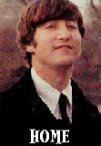

Most songs [on Sgt. Pepper] we did as if we were recording live, like mono. We spent hours getting drum, bass, and guitar sounds, then balancing them and doing the take. That was in effect a backing track and then we later added overdubs. Nowadays you can overdub individually with each person having his own channel to record on. Then we'd have to think of all the instrumental overdubs, say, a guitar coming in on the second verse and a piano in the middle and then a tambourine. And we'd routine all of that, get the sound and the balance and the mix and do it as one performance. And if one person got it wrong we'd have to back up and do the entire overdub of all the parts again.
We had old microphones and pretty antiquated machines, but we'd find new meanings in old equipment, and I think it was largely because of the times and the state of mind everyone was in that it was exciting to try and come up with ideas.
~GEORGE HARRISON
We were being influenced by avant-garde composers. For "A Day in the
Life," I suggested we should write all but fifteen bars properly so that
the orchestra could read it, but where the fifteen bars began we would give
the musicians a simple direction: "Start on your lowest note and eventually
at the end of the fifteen bars, be at your highest note." How they got up
there was up to them, but it all resulted in a crazy crescendo. It was
interesting because the trumpet players, almost famous for their fondness
for lubricating substances, didn't care, so they'd be there at the note ahead
of everyone. The strings all watched each other like little sheep: "Are you
going up?" "Yes." "So am I." And they'd go up. "A little more?" "Yes." And
they'd go up a little more, all very delicate and cozy, all going up together.
You listen to those trumpets. They're just freaking out.
~PAUL McCARTNEY

